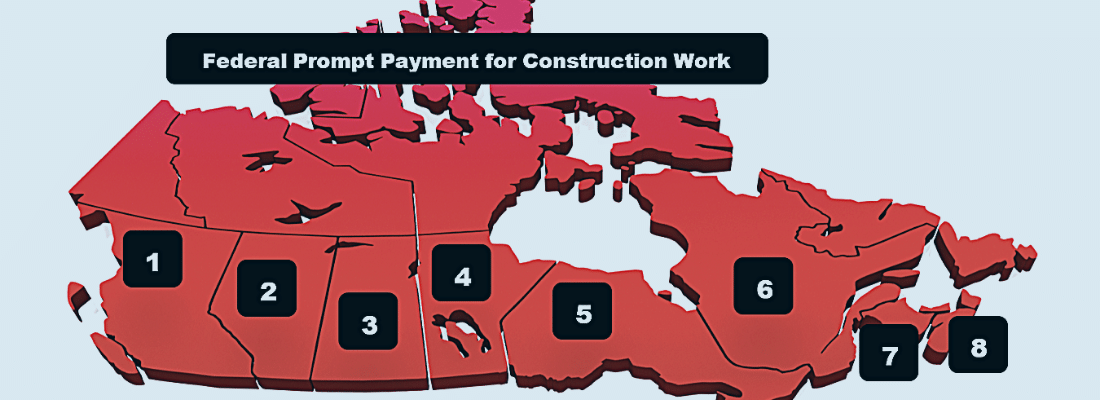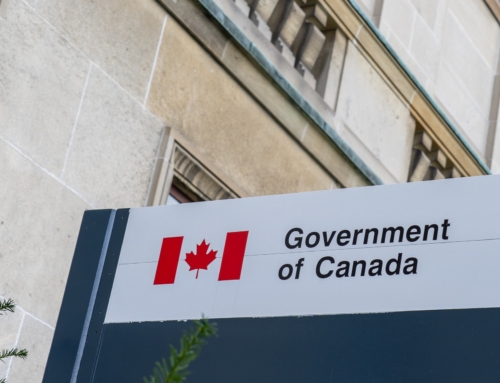For years, the CISC has been a strong supporter and advocate for the implementation of Prompt Payment legislation across the country.
To date, through continuous efforts and collaboration with industry partners, we have achieved several milestone accomplishments, but the work is still ongoing. Our efforts will ultimately result to timely payments for Canadian contractors and sub-contractors working on construction projects.
What does this mean? It means that by promoting and advocating the importance of immediate prompt payment legislation to all levels of government, we will strengthen businesses, families, and communities and promote:
- Quality companies will no longer go bankrupt due to untimely payments.
- Money will flow better through the construction supply chain; cash flow to small employers strengthens businesses.
- Companies will have the funds to invest in their businesses, meaning more hired apprentices and newer equipment, an increase in productivity.
- Reduced risk in business, resulting in competitive pricing in the market; increase in competition and drives prices down.

There have been many recent developments in both Canadian prompt payment and construction law reforms that will affect the Canadian construction & infrastructure sector. Here is a brief overview of the developments across the country:
Federal
At the federal level, the Federal Prompt Payment for Construction Work Act was passed as part of a larger budget bill on June 21, 2019; it addresses the non-payment of contractors and subcontractors performing construction work for federal construction projects but it is not yet in effect: https://laws.justice.gc.ca/eng/acts/F-7.7/FullText.html. Once in force, it will allow for a one-year deference period before it applies to existing contracts and the federal government has the option to exempt federal projects from the federal regime, if there is an overlap with similar provincial legislation in effect.
As for the progress in the various provinces, below is a summary:
- British Columbia
A Report on The Builders Lien Act https://www.bcli.org/wordpress/wp-content/uploads/2020/07/Report-Builders-Lien-Act-final.pdf was published by BC Law Institute in July 2020. The report outlined 86 recommendations to simplify the Builders Lien Act and address certain problematic provisions; it refers to Prompt Payment and adjudication of general financial management matters of construction projects, where the Builders Lien Act is primarily concerned with security of payment. Practices and contractual arrangements in construction and real property development have continued to evolve, giving rise to new issues and uncertainties in the application of the Act.
- Alberta
On December 9, 2020, the Builders’ Lien (Bill 37)- Prompt Payment Amendment Act, 2020, https://www.assembly.ab.ca/assembly-business/bills/bill?billinfoid=11872&from=bills
received royal assent, but it is still not yet in force. It deals with the major reforms introduced in the Act; introduces Prompt Payment requirements, adjudication (the new dispute resolution mechanism and the prolongation of lien registration periods. Under certain conditions, both major and minor lien fund payments to contractors are mandatory. There is also the proposed renaming of the Act as the Prompt Payment and Construction Lien Act. One noteworthy item is the effect of invoices to be issued at least every 31 days, unless certain contractual requirements are not respected.
- Saskatchewan
The Builders’ Lien (Prompt Payment) Amendment Act, 2019 received royal assent on May 15, 2019 but is yet to come into force: https://pubsaskdev.blob.core.windows.net/pubsask-prod/120362/OC411-2020.pdf. On August 20, 2020, an amendment to the existing regulations was filed to elaborate on the prompt payment and adjudication regime, as it will come into effect on the same day as the Amendment Act. The prompt payment and adjudication regime are limited to selected activities in mining and exploration or electrical energy.
- Manitoba
On November 19, 2018, the Manitoba Law Reform Commission released the final report, the Builders’ Liens Act of Manitoba: http://www.manitobalawreform.ca/pubs/pdf/136-full_report.pdf . The Report recommends major reforms to include prompt payment and adjudication. The recommendation was made to rename the legislation, as The Construction Contract Remedies Act.
- Ontario
On October 1, 2019, the Construction Act came into force (previously known as the Construction Lien Act), https://www.attorneygeneral.jus.gov.on.ca/english/construction_law_in_ontario.php. The new Act includes stipulations for Prompt Payment and Adjudication, to promote faster payment deadlines and bring more accountability for reasons of non-payment.
For example:
- Owners must pay within 28 calendar days or formalize dispute within 14 calendar days.
- Contractors to pay subcontractors within 7 days of receipt of payment or in the alternative formalize a dispute within 7 days.
- Adjudication, which is overseen by the Ontario Dispute Adjudication for Construction Contracts (ODACC)shall start prior to completion of the contract or subcontract.
- Québec
On December 1, 2017, the Autorité des marchés publics was created in Quebec by the enactment of the Act to facilitate oversight of public bodies’ contracts.” http://www.assnat.qc.ca/en/travaux-parlementaires/projets-loi/projet-loi-108-41-1.html
This Act enabled the Pilot Project http://legisquebec.gouv.qc.ca/en/ShowDoc/cr/C-65.1,%20r.%208.01/ to be handled by the Conseil du trésor, aimed at testing various measures to facilitate payment to enterprises that are parties to the public construction contracts, to public subcontracts directly or indirectly related to those contracts, and defining standards, payment calendars and dispute resolution by adjudicators applicable. This Act is destined to become law in 2022.
- New Brunswick
The Office of the Attorney General recommends a two-phase process: the reform of the Mechanics’ Lien Act and the introduction of prompt payment and adjudication,
https://www2.gnb.ca/content/gnb/en/departments/public-safety/attorney-general/content/law_reform.html. The Construction Remedies Act (Bills 12) https://www.gnb.ca/legis/bill/FILE/60/1/Bill-12-e.htm
passed a second reading on November 20, 2020. For the first phase, the Bill called for amending lien, holdback, trust, substantial performance, and security bond provisions. As a second phase, the reforms discuss stakeholder concerns regarding the introduction of adjudication. Taking into consideration the small jurisdiction of New Brunswick, co-operation with other jurisdictions is a potential solution.
- Nova Scotia
The amended Builders’ Lien Act, not yet in force, received royal assent on April 12, 2019, renaming the current lien legislation as the Builders’ Lien and Prompt Payment Act. https://nslegislature.ca/legc/bills/63rd_2nd/3rd_read/b119.htm. The Act is aligned with the Ontario model, which will be applicable to contracts and subcontracts made after the date of enactment, however, it limits the availability of adjudication to disputes that are the “subject of a notice of non-payment.”
Hellen Christodoulou, PH.D. Ing., B.C.L., LL. B, M.B.A










